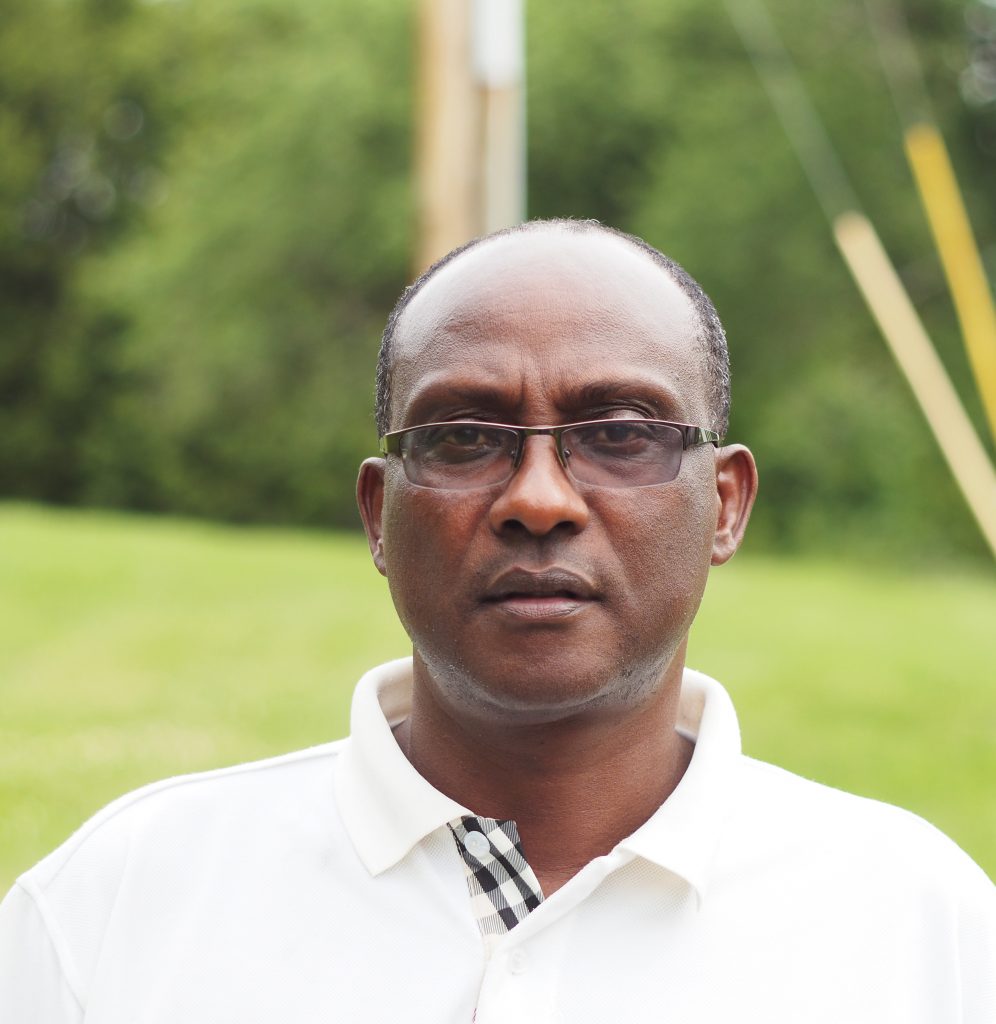‘We have moved a step’: A conversation with Johnson Mugaga of Rwanda
August 14th, 2019 | SIT Graduate Institute

Johnson Mugaga is division manager at the National Unity & Reconciliation Commission of Rwanda. The commission was established to unite Rwanda in the aftermath of the 1994 genocide against the Tutsi. A math teacher who earned a BA in education in Uganda and an MBA in the UK, Johnson works with a team that liaises with NGOs, religious leaders, and organizations that engage in peacebuilding, community outreach, and grassroots development.
“We look at how each uses their particular medium to pass on the message of peace … We meet with political parties, religious leaders, media, civil society, the public and private sectors, and community members to ask them what they are doing to foster unity and fight discrimination and exclusion. These are the core drivers of the genocide against the Tutsi. We watch for this on all levels.”
Johnson began his career in civil service in 1994 when he was asked to step in as deputy governor in a southern province, where he oversaw the resettlement of displaced persons and refugees. “After the genocide, everyone was called upon to give a hand,” he said. “They would look at where you were most competent – running clinics or orphanages, in trauma healing, doing community work. Sometimes we did this with no salary.”
We spoke with Johnson during his visit to Vermont this summer as part of SIT’s 2019 CONTACT Peacebuilding Program.
The whole system had broken down. People needed to be secure.
Was this service a way to help the country heal?
In part, yes. The whole system had broken down. People needed to be secure. They needed a local leader to call, police, support services. So, it was part of the healing process because at that particular moment people’s basic needs had to be met: health care, clean water, shelter, food, security. Later we started the distribution of farm implements – hoes and seeds. Then we started schools, markets, local governments.”
The Rwandan community identified the following as the key drivers of 1994 genocide against the Tutsi: a culture of impunity, ignorance, bad governance, and poverty.
What did this service instill in you?
Resilience. I realized you must stand firm whenever you face a problem; that we, as Rwandans, must be there, must own it. So, it created a sense of ownership; a knowledge that the problem would not be solved by arbitrators or mediators or peacekeepers but by we, the Rwandans. That we must look for ways of sitting together to find common ground and solutions to our problems.
The National Unity and Reconciliation Commission carried out grassroots consultations and the Rwandan community identified the following as the key drivers of 1994 genocide against the Tutsi: a culture of impunity, ignorance, bad governance, and poverty. These findings were brought to the National Summit and partly informed the policies, legislation and institutions to address those problems.
For example, in 2002 Rwanda introduced decentralization and established 107 local governments to address the issue of giving voice and power to the people. But it is one thing to elect council members and another to know what to do. It is in this regard that I was appointed the Pioneer Secretary General of the Rwanda Association of Local Government Authorities in 2002.
Rwandan identity was destroyed in 104 years; you can’t rebuild it in 25 years.
Do you feel like your country’s differences have largely been put behind you now?
I can say we are secure, but one thing you must understand is that the divisions in Rwanda are rooted in our colonial legacy: German rule, Belgian rule, divisive post-independence leaders influenced by the Catholic Church. That thinking percolates in our genocide. … Rwandan identity was destroyed in 104 years; you can’t rebuild it in 25 years. You can’t compare us to Kenya or Uganda. They did not have a genocide. You don’t wake up and overnight say ‘we have done it.’ Can you imagine somebody who killed people including his own children? Can you imagine the stories being told by survivors to their children, by perpetrators to their children?
As we talk today, people are still suffering from the German occupation of Belgium in World War I. People in the fourth generation are suffering from intergenerational trauma. So, you can’t wake up today and tell me the genocide ideology has disappeared. We have national unity, yes. Our policies are unified nationally. But internally we have not gone that far. It’s been one generation. It won’t just disappear. So yes, we have moved a step, but we must move much farther.
